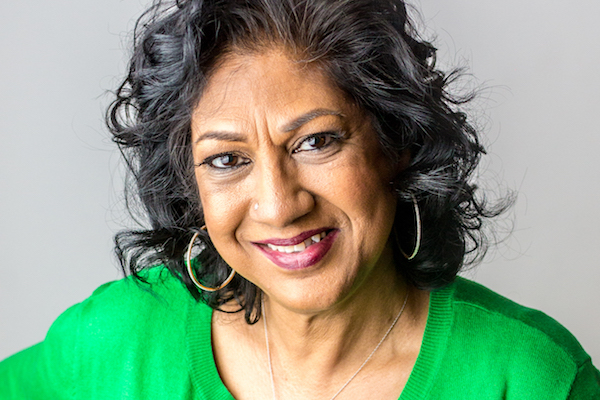“I did it because it needed to be done.” –Colevia Carter, former member of the DC Human Rights Commission and the Ryan White HIV/AIDS Commission.
HIV/AIDS hit Washington, D.C. hard. Beginning in the early 1980s, the epidemic spread with deadly speed throughout the region, devastating the gay and black communities in particular. Women, especially those of the lesbian community, quickly emerged at the forefront of the fight against the disease. They armed themselves with information and went out into the community to help. They founded organizations to provide services and support to people with HIV/AIDS. They developed education and prevention programs within established institutions like the Whitman-Walker Clinic. They raised awareness in any way they could.
The Rainbow History Project (RHP) is dedicated to collecting, preserving, and promoting the history of sexually diverse communities in the Washington, D.C. metropolitan area. To highlight the contributions of women activists in the fight against HIV/AIDS in D.C., RHP is hosting a public panel on May 9 at 7:30 p.m. at the Shaw (Watha T. Daniel) Library in Washington, D.C. Distinguished panelists will include Colevia Carter, Valerie Papaya Mann, Patricia Nalls, and Dr. Patricia Hawkins. Their achievements represent a cross-section of the female-led response to the HIV/AIDS crisis.
Colevia Carter first heard about a disease that was killing gay men around 1982. By 1984, she had organized the first D.C. conference on Women and HIV/AIDS and began a program in D.C. correctional facilities, where she worked, to educate inmates about the disease. She continued to educate people about AIDS throughout her career and through her volunteer work. Carter was honored by RHP as a community pioneer in 2012. Her profile is available on RHP’s web site and her oral history is also available in RHP’s archives.
Valerie Papaya Mann, a performance artist, poet, and community organizer, drew upon her skills in creating community spaces to contribute to fighting HIV/AIDS. Mann led the way when she designed the first outreach media campaign materials targeted to the African-American community in the early ’80s. She served as executive director of AIDS Project, East Bay, The DC Care Consortium, and Africa AIDS Watch and was a member of the Ryan White Care Community Council, the CDC work group, and numerous HIV/AIDS councils nationally. Mann was honored by RHP in 2009 as a community pioneer. Her profile and oral history are both available in RHP’s archives.
Patricia Nalls was diagnosed with HIV in 1986, shortly after losing her husband and daughter to AIDS. At that time, most services for people with HIV/AIDS were geared toward gay men. Seeing a need for services and support more appropriate for women with HIV/AIDS, Nalls founded The Women’s Collective, an organization that provides programs and services implemented by women for women whose lives have been dramatically changed by HIV/AIDS.
Dr. Patricia Hawkins provided mental health and social services at the height of the AIDS epidemic through the Whitman-Walker Clinic, eventually joining the Clinic’s board with responsibility for its AIDS programs. Of her work at Whitman-Walker, she says, “The philosophy was very clearly, ‘If people need it, then we’ll figure out a way to deliver it. We’ll figure out a way to fund it.’ And that’s what we did.” Hawkins was honored by RHP as a Community Pioneer in 2009 and her biography and oral history are also available through RHP.
Carter, Mann, Nalls, and Hawkins each saw a need and rather than shy away from the task, took it upon themselves to help those in crisis. Similar stories abound in the RHP archives, particularly related to the response to the AIDS crisis. For instance, RHP’s Exhibit of The ClubHouse, a dance club and community space, highlights the institution’s importance during the early days of the epidemic. The ClubHouse hosted the African American community’s first AIDS educational forum in September of 1983.
As we honor the contributions these women made to the fight against this devastating disease, it is incumbent upon us to draw inspiration from their success and apply it to the future. The HIV/AIDS crisis is not over in the D.C. area. According to the DC Health Department’s latest report, a full 1.9% of D.C.’s population is infected. That is 13,000 people. Of those people, the most affected are black gay men and black women. Even after all this time, we are still in the midst of an epidemic. It is RHP’s hope that as we preserve and promote our history, we can use it to improve our future.
The Rainbow History Project public panel Women Leaders, Lesbian Activists and the DC AIDS Crisis takes place May 9 at 7:30 p.m. at Shaw Library in Washington, D.C.

